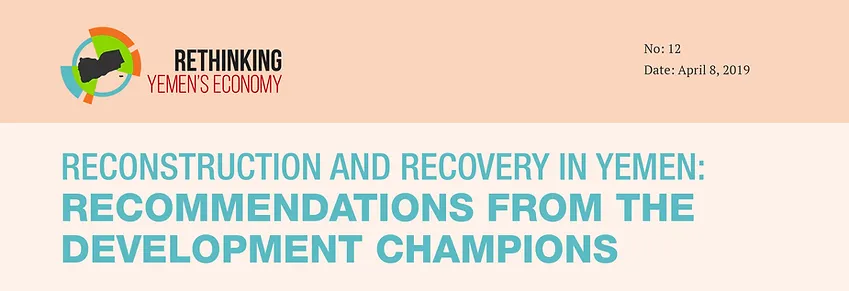INTRODUCTION
The conflict in Yemen has created the worst humanitarian crisis in the world; this has been exacerbated by the devastation of the country’s economy. As the conflict approaches its fifth year, fighting has damaged state institutions and destroyed physical infrastructure, including schools, hospitals, road networks, businesses and homes. The state’s provision of basic services such as health care, education, water and electricity, was weak prior to the conflict, and these services have deteriorated further during the war; in addition, the state has not paid regular salaries to its civil servants since 2016. The social fabric has also been severely damaged.
The conflict has driven the collapse of Yemen’s economy and created multiple challenges for the country’s banking and financial sectors. The country’s gross domestic product has contracted by 50 percent. The Yemeni rial has lost more close to two thirds of its purchasing power, relative to the US dollar, since March 2015. The administration of the Central Bank of Yemen has been divided across front lines since September 2016. The Yemeni government has been reliant on a $2 billion deposit provided by Saudi Arabia in January 2018 for its foreign currency reserves, with little apparent vision on how to proceed when this runs out. Yemen’s primary capital-generating sectors are not functioning at capacity, and the state has not been able to resume effective revenue collection.
While there have been discussions about the reconstruction and recovery process in Yemen, no official donor-driven, coordinated, comprehensive response has begun.The World Bank has been developing a reconstruction and recovery blueprint, but seems to have ended this effort without tangible results. Saudi Arabia and the United Arab Emirates launched the Yemen Comprehensive Humanitarian Operations, which included minor road reconstruction. Riyadh has since announced the Saudi Program for Reconstruction, which appears to be ad-hoc with short-term interventions, limited to areas under the control of the internationally recognized Yemeni government.
The Development Champions emphasize that reconstruction and recovery efforts cannot wait until the conflict ends. They held in-depth discussions about the needs and demands of an effective reconstruction process in the Yemeni context and developed the following set of’ guidelines and recommendations to approach the reconstruction of Yemen.
